Becoming a successful marine ship engineer involves more than just obtaining a degree or certification; it requires a blend of technical skills, practical experience, leadership abilities, and a commitment to continuous learning. With the maritime industry evolving due to new technologies, environmental regulations, and automation, marine ship engineers must adopt a well-rounded approach to thrive in this demanding profession.
Academic and Technical Qualifications
A solid educational foundation is the first step toward a successful career in marine engineering. Prospective ship engineers typically begin their journey by pursuing a degree or diploma in marine engineering from a recognized maritime institution.
Educational Pathways:
- Bachelor’s Degree in Marine Engineering: This 4-year program covers ship design, propulsion systems, and onboard machinery operations.
- Diploma in Marine Engineering (Pre-Sea Training): Offered by maritime training academies, focusing on practical marine engineering skills.
- Postgraduate Studies: Master’s degrees in specialized fields like naval architecture, ship automation, or sustainable maritime engineering can open up senior-level roles.
Example: Graduates from institutions such as the World Maritime University (WMU) or Massachusetts Maritime Academy frequently secure officer roles in leading shipping companies due to their industry-relevant curricula.
Required Certifications and Licenses
Certifications play a crucial role in a marine engineer’s career, ensuring compliance with international maritime standards and regulatory bodies like the International Maritime Organization (IMO).
Key Certifications:
- STCW Certification: Required under the Standards of Training, Certification, and Watchkeeping (STCW) Convention, enabling engineers to serve onboard ships.
- Engineer Officer of the Watch (EOOW): An entry-level certification allowing engineers to manage engine room operations.
- Second and Chief Engineer Certifications: Advanced licenses that authorize the holder to supervise all technical aspects of ship operations.
Case Study: A marine engineer who earned a Chief Engineer’s License from the Maritime and Coastguard Agency (MCA) rose through the ranks from an engine cadet to a fleet technical manager at a major shipping line.
Practical Experience and Sea Time
Hands-on experience onboard ships is essential for a marine engineer’s career progression. Sea time involves working as a cadet or junior engineer to gain real-world experience in ship maintenance, engine operations, and problem-solving under challenging conditions.
Why Sea Time Matters:
- Operational Skills: It allows engineers to master critical ship systems like propulsion, electrical generators, and refrigeration units.
- Problem-Solving Abilities: Real-time troubleshooting develops resilience and technical insight.
- Career Advancement: A minimum number of sea-time months is required for higher-level certifications.
Example: An engine cadet completing 12 months of sea time on a tanker ship gained extensive knowledge of fuel injection systems and engine troubleshooting, earning promotion to a third engineer role.
Technical Competence and Core Skills
Marine engineers must master a range of technical competencies related to mechanical, electrical, and hydraulic systems. Their skills ensure optimal ship performance and compliance with international safety regulations.
Core Technical Skills:
- Engine Room Operations: Familiarity with two-stroke and four-stroke marine diesel engines, pumps, and compressors.
- Machinery Maintenance: Ability to perform preventive and corrective maintenance on shipboard machinery.
- Electrical and Automation Systems: Knowledge of shipboard control systems such as Programmable Logic Controllers (PLCs), ECR (Engine Control Room) automation, and alarm systems.
Case Study: An engineer aboard a VLCC tanker successfully diagnosed and repaired a malfunctioning fuel injector using engine performance data from an onboard monitoring system, saving the company $20,000 in fuel costs.
Leadership and Team Management
A successful marine ship engineer must possess leadership qualities to manage technical teams, coordinate with ship officers, and lead emergency response efforts during critical situations.
Leadership Traits:
- Team Supervision: Overseeing engine room staff and delegating maintenance tasks effectively.
- Crisis Management: Handling emergencies like engine failures, fires, and power outages with calm and decisive action.
- Training and Development: Mentoring junior engineers and conducting regular safety drills.
Example: A Chief Engineer aboard a cruise liner led an emergency response team during a sudden generator failure. His leadership ensured the safe restoration of power within two hours, avoiding passenger discomfort and potential financial losses.
Industry Awareness and Technological Adaptability
With rapid technological advancements in the maritime industry, staying updated with new technologies and regulatory changes is crucial.
Key Areas to Focus On:
- Green Shipping Technologies: Understanding eco-friendly fuels such as LNG, hydrogen, and biofuels.
- Digital Automation: Familiarity with modern ship automation systems like Integrated Automation Systems (IAS).
- Maritime Regulations: Staying compliant with IMO regulations on emissions, ballast water management, and ship energy efficiency measures.
Case Study: A marine engineer specialized in Ballast Water Treatment Systems successfully led a retrofitting project on an entire fleet, ensuring compliance with IMO regulations and reducing the company’s environmental impact.
Soft Skills and Professional Networking
Beyond technical expertise, a successful marine engineer must develop strong communication and interpersonal skills to collaborate with diverse teams and build a professional network in the maritime industry.
Essential Soft Skills:
- Effective Communication: Ability to communicate technical issues clearly with ship officers, port authorities, and maintenance crews.
- Cultural Awareness: Working in multicultural environments onboard international ships.
- Problem-Solving: Demonstrating a proactive approach to solving engineering challenges.
Example: An engineer participating in international maritime conferences like SMM Hamburg expanded his professional network, securing a senior position at a major ship management company.
Conclusion: The Pathway to Success
Becoming a successful marine ship engineer involves balancing multiple criteria, including technical skills, industry certifications, sea-time experience, leadership capabilities, and a commitment to continuous learning. Success in this career demands adaptability to emerging maritime technologies and strict compliance with international standards. By following this multi-criteria approach, aspiring marine engineers can navigate a fulfilling career path that offers both professional growth and long-term job security in the ever-evolving maritime industry.

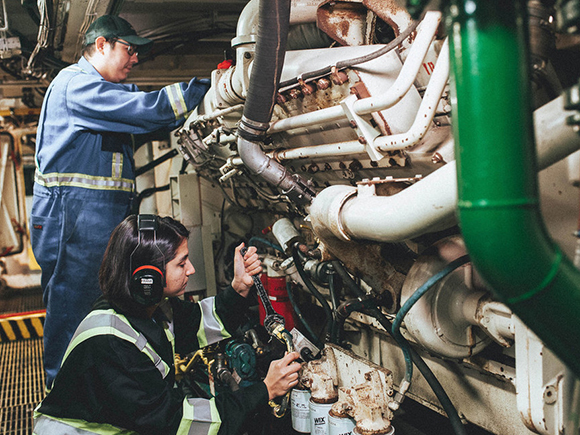
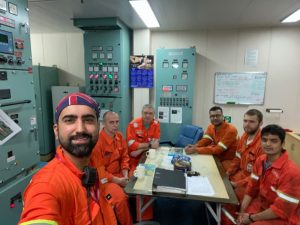
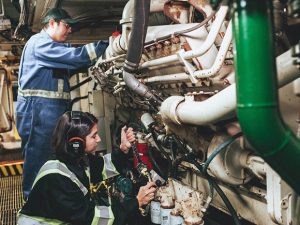

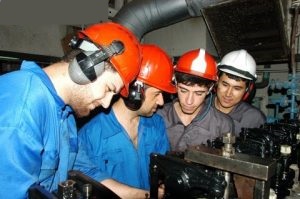



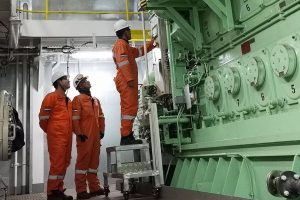
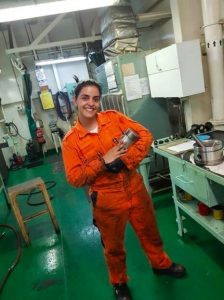
Thank youuuuuuuuuuu !